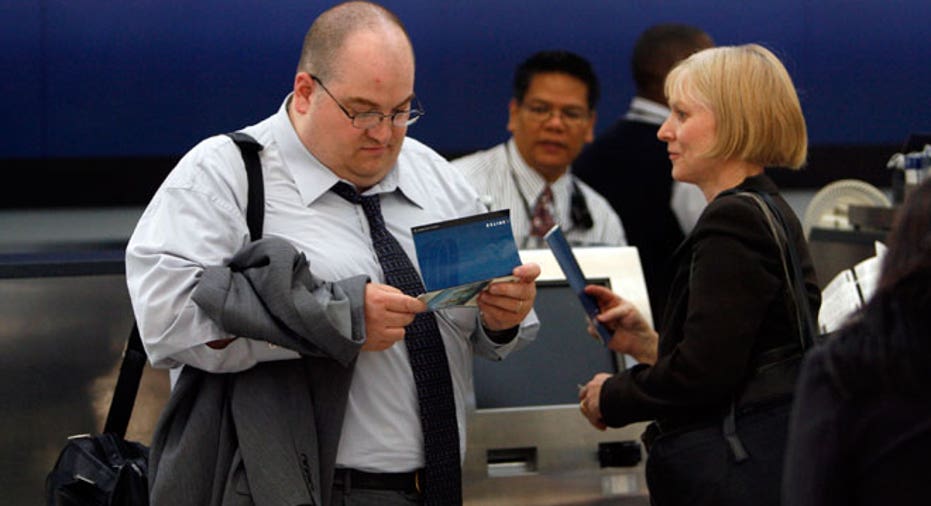Is an Award Flight Taken for Business Tax-Deductible?

Dear Cashing In,
I read an article by Randy Petersen entitled "Using Frequent Flier Miles on a tax-deductible trip." In that article, he states that "business expense deductions are covered under IRS 162."
I took a business trip and used my frequent flier mileage to obtain the ticket (no upgrade involved). The IRS has asked me to produce case law or specific section of 162 that authorizes me to deduct fair market value of the ticket as a business-related expense. Can you or Mr. Petersen provide me with any case law or specific Revenue Ruling or specific IRS section that applies?
- Terry
Dear Terry,
In the article you refer to, written in May 2009 for CreditCards.com, Randy Petersen never says a taxpayer is allowed to deduct the fair market value of redeemed frequent flier miles. The way the Internal Revenue Service sees it, you did not pay anything for that ticket so there is no deductible expense. "There are no portions of Section 162 or case law that appear to justify that deduction," says CPA Paul Conway.
Had you paid for your ticket with cash, it would be a different story, and that's where Section 162 of the IRS Code comes in. It covers business expenses, including what items are deductible, required documentation, business nature of the expense and overall reasonableness of the expense.
So, for instance, it is intended to offer guidance on whether a trip that involved both business and pleasure could be considered a business expense. "An airline ticket to meet with a business client to inspect a property in another state prior to purchase would be a deductible item," says Conway. "Taking your family on the Gulfstream to supposedly look at properties near Disney for two hours, and then spending the rest of the week on Splash Mountain, probably won't pass muster."
Your confusion may have come from the fact that Petersen discussed fair market valuation of frequent flier miles -- but that valuation is only relevant in non-tax situations. (Editor's note: Petersen's piece has been updated to avoid confusion caused by discussion of fair market valuation. That section has been removed.)
The normal procedure for the IRS is to forbid a deduction unless you can produce documentation suggesting that the IRS will accept the item or has been ruled in favor of the taxpayer in court. If the taxpayer can't produce that information, the deduction will be refused.
"In an audit, you're guilty until proven innocent," says Conway. "If the IRS questions an expense, you are responsible for proving that the item is allowed under the code. It is the rare auditor who will offer you a specific path to back your position."
No specific cases have been argued relating to taking a fair market valuation for a deduction related to redeeming frequent flier or comparable programs. "The only information related to frequent flier programs relate to the non-inclusion as income when they are earned and/or redeemed," Conway says.
Petersen compared the redemption of miles to using a coupon on a purchase: Only the final sale amount is deductible. In fact, any redemption of rewards to offset the cost of a business deduction results in the loss of the deduction to the extent that the reward pays for the expense. So a cash-back reward that is redeemed to help pay for a business expense would reduce the deduction.
See related: Are credit card rewards taxable? Probably not, but ... , Poll: 2 out of 3 rewards card holders balk at taxing miles, points



















